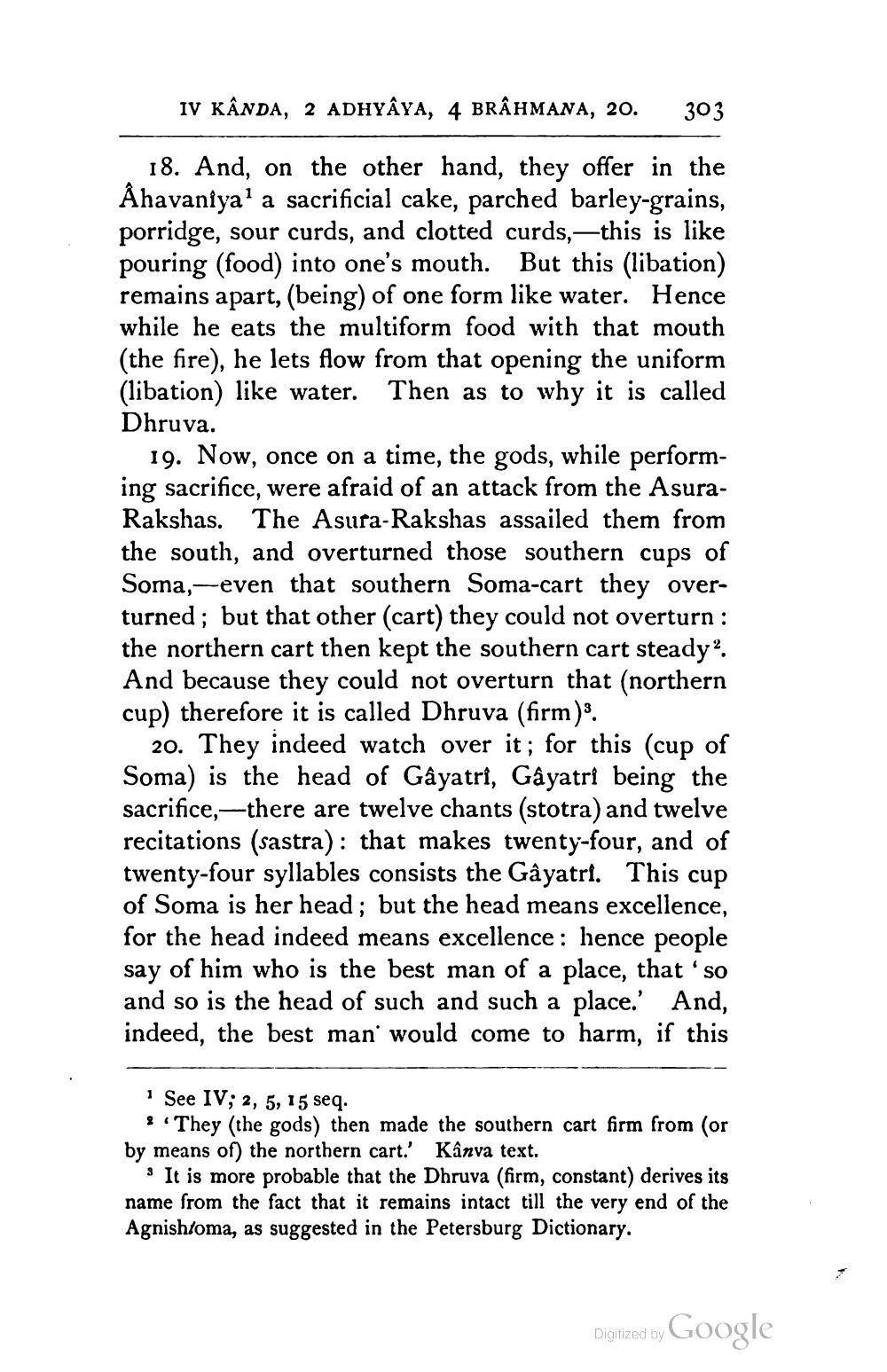________________
IV KÂNDA, 2 ADHYAYA, 4 BRAHMANA, 20.
303
18. And, on the other hand, they offer in the Åhavaniya' a sacrificial cake, parched barley-grains, porridge, sour curds, and clotted curds,—this is like pouring (food) into one's mouth. But this (libation) remains apart, (being) of one form like water. Hence while he eats the multiform food with that mouth (the fire), he lets flow from that opening the uniform (libation) like water. Then as to why it is called Dhruva.
19. Now, once on a time, the gods, while performing sacrifice, were afraid of an attack from the AsuraRakshas. The Asura-Rakshas assailed them from the south, and overturned those southern cups of Soma,-even that southern Soma-cart they overturned; but that other (cart) they could not overturn: the northern cart then kept the southern cart steady? And because they could not overturn that (northern cup) therefore it is called Dhruva (firm)
20. They indeed watch over it; for this (cup of Soma) is the head of Gâyatri, Gayatri being the sacrifice,—there are twelve chants (stotra) and twelve recitations (sastra): that makes twenty-four, and of twenty-four syllables consists the Gâyatri. This cup of Soma is her head; but the head means excellence, for the head indeed means excellence: hence people say of him who is the best man of a place, that 'so and so is the head of such and such a place. And, indeed, the best man' would come to harm, if this
See IV; 2, 5, 15 seq.
"They (the gods) then made the southern cart firm from (or by means of) the northern cart. Kanva text.
It is more probable that the Dhruva (firm, constant) derives its name from the fact that it remains intact till the very end of the Agnishtoma, as suggested in the Petersburg Dictionary.
Digitized by Google




